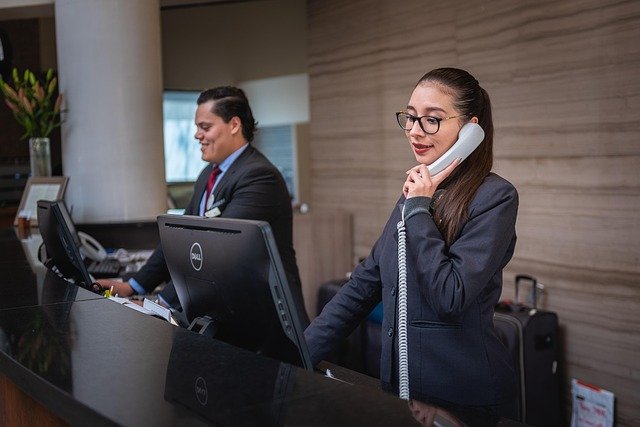Beginner Aviation Training Options for English Speakers in Switzerland
In Switzerland, individuals who speak English and are interested in aviation can consider beginner training programs that introduce the fundamentals of the field. These programs aim to provide essential knowledge and skills necessary for an entry-level understanding of aviation. Various training options exist, catering to diverse interests within the aviation sector.

Switzerland has established itself as a premier destination for aviation education, particularly for English-speaking students from around the world. The country’s aviation training infrastructure combines cutting-edge technology with experienced instructors, creating an environment where aspiring pilots can develop both theoretical knowledge and practical flying skills. Swiss aviation schools maintain strong partnerships with international airlines and aviation organizations, ensuring that graduates meet global industry standards.
Understanding the Basics of Aviation Training in Switzerland
Aviation training in Switzerland follows European Aviation Safety Agency (EASA) regulations, which are recognized worldwide. The training structure typically begins with Private Pilot License (PPL) courses, progressing through Commercial Pilot License (CPL) and Airline Transport Pilot License (ATPL) programs. Students learn fundamental aerodynamics, navigation, meteorology, and aircraft systems through a combination of classroom instruction and simulator training. Swiss aviation schools emphasize safety protocols and precision, reflecting the country’s reputation for excellence in technical education.
Requirements for English Speakers Pursuing Aviation Training
English-speaking students must meet specific prerequisites before beginning aviation training in Switzerland. A minimum age of 16 years is required for PPL training, while CPL programs typically require candidates to be at least 18 years old. Medical certification through an Aviation Medical Examiner is mandatory, ensuring students meet physical and mental health standards for pilot certification. Educational requirements include completion of secondary education, with strong performance in mathematics and physics being advantageous. English proficiency at ICAO Level 4 or higher is essential, as aviation communication relies heavily on standardized English terminology.
Types of Beginner Aviation Training Programs Offered in Switzerland
Swiss aviation schools offer diverse training programs tailored to different career objectives and experience levels. Integrated training programs combine theoretical instruction with flight training in a structured timeline, typically lasting 18-24 months for commercial pilot preparation. Modular training allows students to complete different phases separately, providing flexibility for working professionals or those with budget constraints. Specialized programs include helicopter pilot training, flight instructor certification, and airline-specific preparation courses. Many schools also offer foundation courses that introduce aviation concepts to complete beginners, helping students determine their commitment level before investing in comprehensive training.
Cost Considerations for Aviation Training in Switzerland
Aviation training represents a significant financial investment, with costs varying based on program type and duration. Understanding the financial commitment helps prospective students plan their education effectively and explore available funding options.
| Training Program | Provider | Cost Estimation |
|---|---|---|
| Private Pilot License (PPL) | Swiss Aviation Training | CHF 15,000 - 20,000 |
| Commercial Pilot License (CPL) | Horizon Swiss Flight Academy | CHF 80,000 - 120,000 |
| Airline Transport Pilot License (ATPL) | Airline Academy Switzerland | CHF 150,000 - 200,000 |
| Helicopter Pilot Training | Alpine Helicopter Training | CHF 70,000 - 100,000 |
| Flight Instructor Rating | Various Providers | CHF 25,000 - 35,000 |
Prices, rates, or cost estimates mentioned in this article are based on the latest available information but may change over time. Independent research is advised before making financial decisions.
Training costs typically include aircraft rental, fuel, instructor fees, examination fees, and study materials. Additional expenses may include accommodation, living costs, and medical examinations. Some schools offer financing options or partnerships with banks to help students manage the financial burden. Scholarship opportunities exist through aviation organizations and airline partnerships, particularly for exceptional students or those from underrepresented backgrounds.
Choosing the Right Training Provider
Selecting an appropriate aviation training provider requires careful evaluation of multiple factors beyond cost considerations. Accreditation status with EASA and the Swiss Federal Office of Civil Aviation ensures program quality and certification validity. Faculty qualifications, including instructor experience and industry connections, significantly impact training quality. Fleet condition and aircraft variety provide students with exposure to different systems and technologies. Training facilities, including simulators and maintenance workshops, enhance the learning experience through hands-on practice.
Location considerations include proximity to airports, weather conditions affecting flight training frequency, and access to controlled airspace for advanced training exercises. Student support services, such as career counseling, accommodation assistance, and visa support for international students, contribute to overall program success. Alumni networks and job placement rates indicate the provider’s reputation within the aviation industry and potential career opportunities for graduates.
Swiss aviation training providers maintain strong relationships with European airlines and aviation companies, creating pathways for employment upon graduation. The combination of rigorous training standards, English-language instruction, and international recognition makes Switzerland an excellent choice for English-speaking students pursuing aviation careers. Success in these programs requires dedication, financial planning, and commitment to safety standards that characterize professional aviation.




